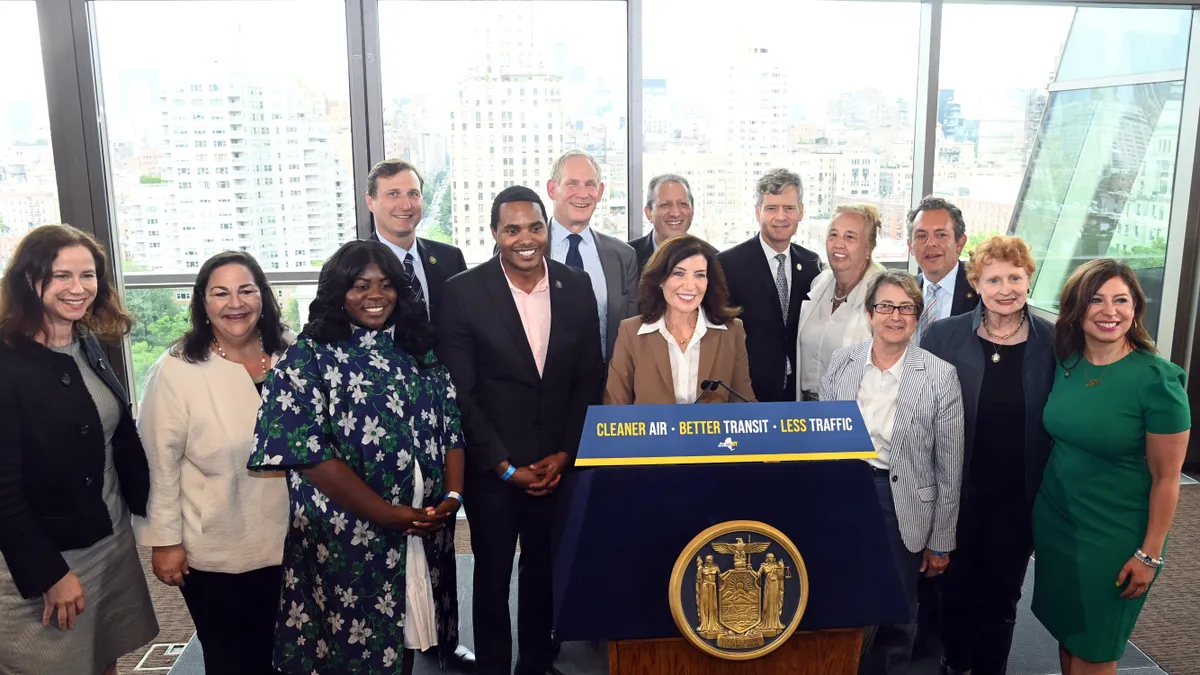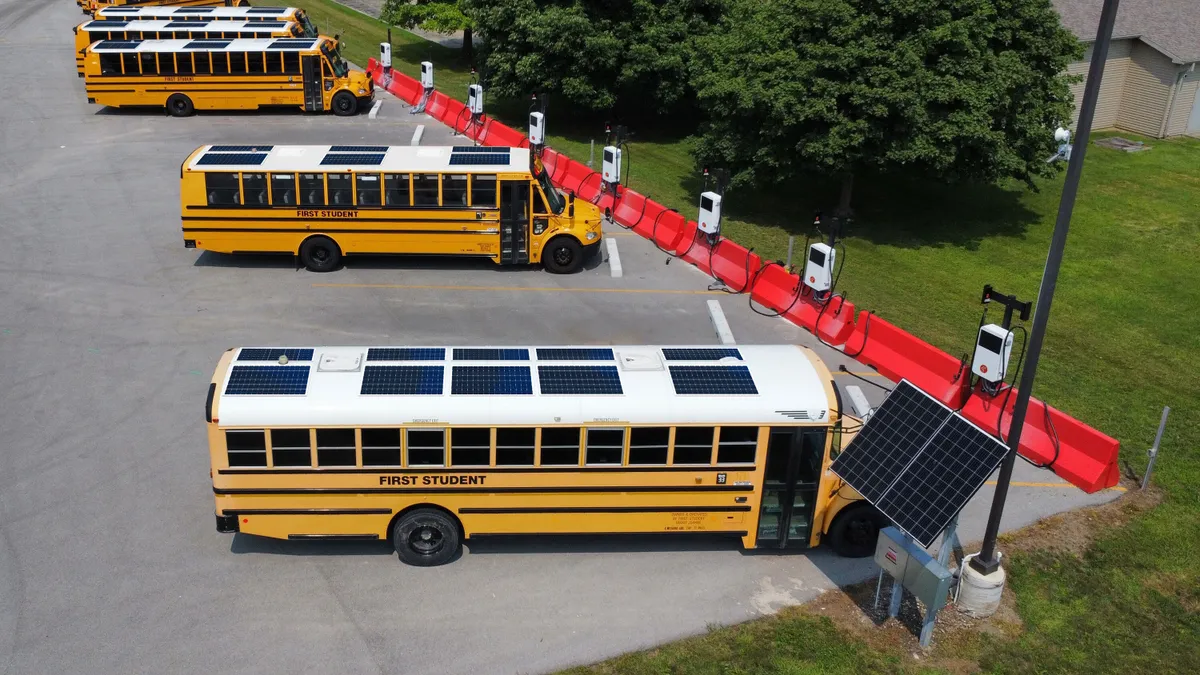The Federal Highway Administration gave New York the green light to implement congestion pricing in Manhattan’s central business district, Gov. Kathy Hochul announced Tuesday at a press conference. After completing the final step of the environmental review process, the FHWA issued a “finding of no significant impact,” setting the stage for toll collections to begin as early as May 2024 for most passenger vehicles entering Manhattan below 61st Street.
“We are going to be the very first state in the nation, the very first city in America, to have a congestion pricing plan,” Hochul said.
Planning for the tolling program began in 2019 by an act of the state legislature. Proponents believe it will reduce traffic congestion in much of Manhattan while reducing air pollution and improving public transportation. New York Metropolitan Transportation Authority CEO Janno Lieber said at the press conference that “congestion pricing means less traffic, better transit, cleaner air and safer streets.”
Drivers could potentially pay from $9 to $23 to enter the central business district, according to information in the environmental assessment, but tolls have not been set yet. The MTA will benefit from funds the tolling program generates, leveraging revenues above the cost of running the program to finance bonds of about $15 billion for the MTA’s 2020-2024 capital investment program. Those who live in the congestion zone and whose New York state-adjusted gross income is $60,000 or less will be eligible for a state tax credit equal to the amount of tolls they paid during the taxable year.
“It’s been a long time coming, but federal approval for congestion pricing will provide a seismic shift in our ability to better fund mass transit and shift New Yorkers from their cars into an improved regional transportation network,” said New York Building Congress President and CEO Carlo Scissura in an emailed statement.
The environmental assessment estimated a 15%-20% reduction in the number of vehicles entering the central business district, which has seen bus speeds drop 28% since 2010 — a sign of greater congestion.
Bus riders, which include a greater proportion of low-income and minority households compared with other modes of transportation in the city, are expected to benefit from the tolling program. U.S. Rep. Ritchie Torres, speaking at the press conference, said, “It’s a win for equity because it will benefit the lowest-income communities of color.”
Funding from the program would also go toward installing electric truck charging stations, renovating parks in environmental justice communities and installing air filtration units in schools near highways.
New Jersey politicians opposed to the congestion pricing plan vowed to continue fighting the program. U.S. Reps. Josh Gottheimer and Rob Menendez, both Democrats representing New Jersey, said in a joint statement issued Tuesday that they were “outraged” at the FHWA’s decision, calling the plan “nothing more than a cash grab to fund the MTA.” The congressmen contend the tolls “will impact our state’s environment and hurt New Jersey families and small business owners.”
Commuters who currently drive passenger vehicles into Manhattan from New Jersey pay one-way peak-hour tolls on most bridge and tunnel crossings of $14.75 to $17.00.
New Jersey Gov. Phil Murphy, D, expressed his opposition to the tolling plan in a 15-page letter to the FHWA on June 12, citing numerous impacts on New Jersey commuters and the state’s transportation network. Among the governor’s concerns are air quality issues from new traffic patterns and potential toll costs for New Jersey Transit buses entering Manhattan, which could result in higher fares that hurt low-income riders.
But supporters at Gov. Hochul’s press conference, including Tom Wright, president and CEO of the Regional Plan Association, and Danna Dennis, senior organizer of the Riders Alliance, applauded the plan’s approval. Speaking at the press conference, Dennis acknowledged the “naysayers” and said, “We need to push back and let them know what the benefits are.”
The Los Angeles County Metropolitan Authority is also considering congestion pricing for specific freeways during peak hours and expects to have a feasibility study ready for review by the end of this year.




















